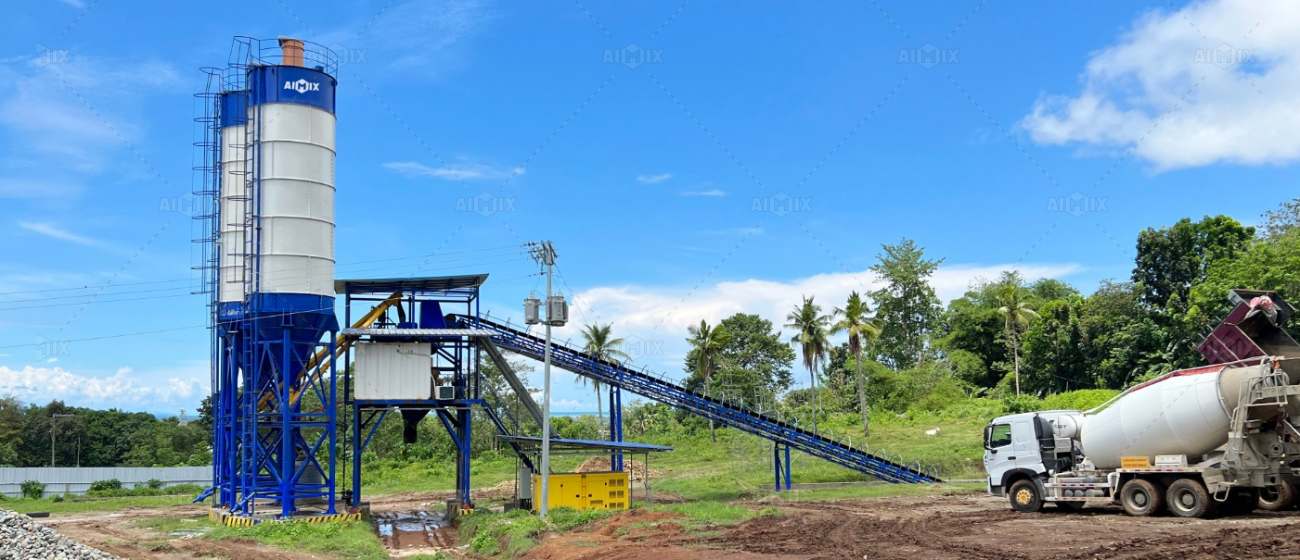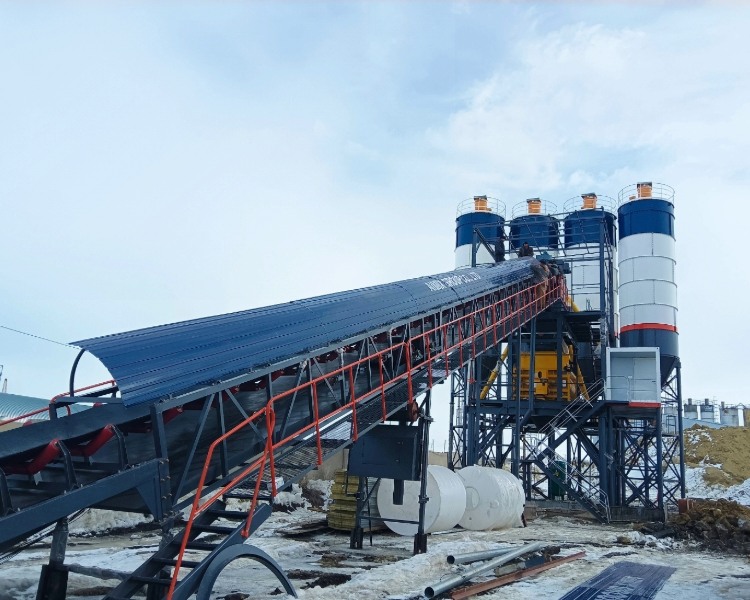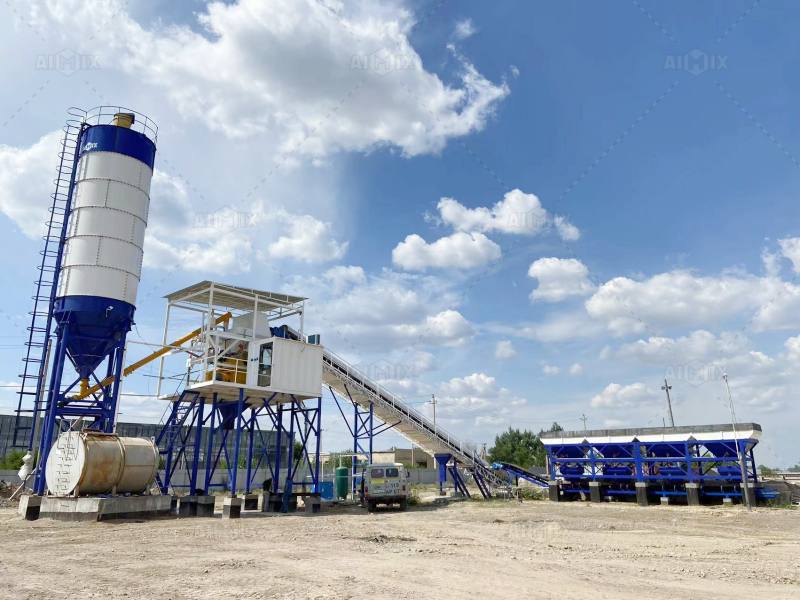Sustainable building practices have become a key focus in the global construction industry as governments, companies, and consumers push for environmentally friendly solutions. One crucial player in this movement is the ready mixed concrete plant. These plants not only supply high-quality concrete but also have the potential to significantly reduce the environmental footprint of construction projects. This article explores how ready mixed concrete plants contribute to sustainable building and how integrating these principles can be part of a successful concrete batching plant business plan.

Understanding Ready Mixed Concrete Plants and Sustainability
Ready mixed concrete plants manufacture concrete in controlled environments and deliver it directly to construction sites. Unlike on-site mixing, ready mixed concrete allows precise control over material proportions, leading to less waste, improved quality, and better resource management.
Sustainability in ready mixed concrete plants means optimizing every stage—from raw material selection to energy use, waste management, and emissions control. Modern plants are increasingly incorporating green technologies and adopting practices that reduce their environmental impact while maintaining product quality.
Key Sustainability Benefits of Ready Mixed Concrete Plants
-
Reduced Material Waste
In ready mixed concrete plants, concrete is produced to exact specifications tailored for each project. This precision minimizes excess concrete production and reduces the likelihood of discarding unused material. By contrast, on-site mixing can lead to overproduction and significant waste.
-
Efficient Use of Raw Materials
Sustainable plants optimize the use of raw materials such as cement, aggregates, and water. Many ready mixed concrete plants utilize supplementary cementitious materials (SCMs) like fly ash or slag, which reduce reliance on Portland cement—a major source of CO₂ emissions in concrete production.
-
Energy Efficiency
Advanced concrete batching plants incorporate energy-efficient motors, automated controls, and lighting systems. Some plants harness renewable energy sources like solar panels to power operations, further lowering their carbon footprint.
-
Water Conservation
Water is a critical resource in concrete production. Sustainable plants often recycle process water used in mixing and cleaning, minimizing freshwater consumption. Proper wastewater treatment also ensures that water discharged from the plant meets environmental standards.
-
Lower Transportation Emissions
Ready mixed concrete plants are often strategically located near urban centers or construction hubs, reducing the distance concrete trucks must travel. Shorter transport distances translate to lower fuel consumption and emissions.

Implementing Sustainability in a Concrete Batching Plant Business Plan
For entrepreneurs planning to enter the concrete batching plant business, embedding sustainability into the business model can provide a competitive advantage. Here are some strategic considerations:
-
Site Selection and Layout
Choose plant locations that minimize environmental impact and facilitate efficient distribution. Locating plants near major construction zones reduces delivery times and transport emissions. Designing layouts for optimal material flow and waste management also enhances sustainability.
-
Investment in Green Technologies
Incorporate energy-saving equipment, dust control systems, and water recycling units. These investments might increase upfront costs but can reduce operational expenses over time and improve compliance with environmental regulations.
-
Supplier Collaboration
Source raw materials from suppliers committed to sustainable mining and quarrying practices. Using SCMs and recycled aggregates aligns with green building standards and lowers material costs.
-
Waste Management Plan
Develop a robust waste management strategy to recycle concrete slurry, packaging materials, and other byproducts. Many plants repurpose waste as aggregate for new concrete or road base.
-
Certification and Standards
Seek environmental certifications such as ISO 14001 or LEED credits for your batching plant. Demonstrating compliance can enhance reputation and attract eco-conscious clients.
Case Example: Sustainable Practices in Action
Several global ready mixed concrete plants have successfully integrated sustainable practices. For instance, some plants have installed solar panels to supply a portion of their energy needs. Others utilize automated batching controls that optimize mix designs in real-time, reducing cement consumption and improving quality.
Water recycling systems reclaim wash water from mixer trucks and plant equipment, cutting freshwater use by up to 80%. Additionally, using byproducts from other industries as SCMs diverts waste from landfills and reduces carbon emissions.
Challenges and Solutions
Despite the benefits, implementing sustainability in ready mixed concrete plants can pose challenges:
-
Higher Initial Investment: Green technologies and systems may require upfront capital. However, these can be offset by energy savings and increased market demand for green building materials.
-
Training and Awareness: Staff must be trained in sustainable operations and maintenance. A well-developed training program should be part of the concrete batching plant business plan.
-
Regulatory Compliance: Navigating environmental regulations requires expertise and proactive engagement with authorities.
Overcoming these challenges requires a long-term vision, collaboration with technology providers, and commitment to continuous improvement.

Conclusion
Ready mixed concrete plants play a vital role in advancing sustainable building practices by reducing waste, optimizing resource use, and minimizing environmental impacts. For businesses entering the concrete batching plant market, integrating sustainability into the business plan not only supports environmental goals but also drives operational efficiency and market competitiveness.
By investing in green technologies, choosing responsible suppliers, and implementing effective waste and water management, ready mixed concrete plants can meet growing demand for eco-friendly construction materials. As the construction industry evolves, sustainability will remain a cornerstone of success for concrete batching plants worldwide.
Leave a Reply